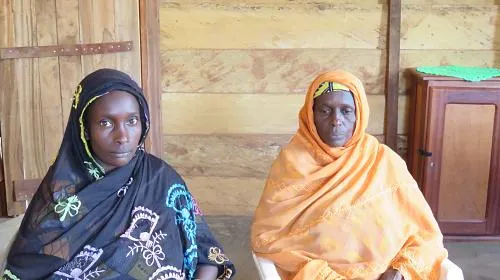YAOUNDÉ, Cameroon (July 18, 2018) — The global humanitarian organization CARE is monitoring the situation and considering the best response as rising tensions in southwest and northwest Cameroon have affected 3.5 million people — 16 percent of the country’s population. More than 160,000 people have been displaced, and dozens attacked or killed. As with any crisis, women and girls are particularly vulnerable.
More than 40 schools have been attacked by armed groups and for nearly two years children’s access to school has been highly disrupted. The economic situation has declined significantly in these regions.
“The situation is highly worrisome,” says Anne Perrot-Bihina, country director for CARE in Cameroon. “CARE and other humanitarian organizations urgently call for more funds to address the urgent and recovery needs of people, be they displaced or hosting displaced populations. Many have lost family members and basic belongings. They need a safe place to stay, food, clean water, medical assistance and psychosocial support. They also urgently need protection and support for economic and educational recovery.”
Demonstrations and strikes started in October 2016. Since then, violent outbreaks have become increasingly frequent. In recent months, escalating tensions and an upsurge in hostilities between non-state armed groups and defense and security forces have triggered humanitarian needs across Cameroon’s southwest and northwest regions.
Most displaced families have found refuge in the forest and are constantly moving to escape clashes between non-state armed groups and security forces. So far, more than 21,000 Cameroonians have registered as refugees in Nigeria.
CARE has worked in Cameroon since 1978, focusing on HIV/AIDS prevention, sexual and reproductive health, rural development & resilience, economic development, sustainable access to water, hygiene and sanitation and humanitarian response. CARE provides recovery interventions in the East of Cameroon to refugees from the Central African Republic and their host communities and in the North to people internally displaced by the Lake Chad conflict and their host communities.
CARE is monitoring the current situation closely. “We are particularly concerned about women and girls, who are always specifically affected by violent conflicts and who are forced to live unprotected in the rainforest or in degraded urban settings,” says Perrot-Bihina. CARE’s team in Cameroon is exploring with partners and local NGOs how best to address the growing needs.
About CARE
Founded in 1945 with the creation of the CARE Package®, CARE is a leading humanitarian organization fighting global poverty. CARE places special focus on working alongside women and girls because, equipped with the proper resources, they have the power to lift whole families and entire communities out of poverty. That’s why women and girls are at the heart of CARE’s community-based efforts to improve education and health, create economic opportunity, respond to emergencies and confront hunger. Last year CARE worked in 93 countries and reached more than 63 million people around the world. Learn more at care.org.
Media contacts
Mahmoud Shabeeb, mshabeeb@care.org, +962-79-146-39-03, Skype: mahmoud.shabeeb_1 (based in Amman, Jordan)
Nicole Harris, nharris@care.org, 404-735-0871

